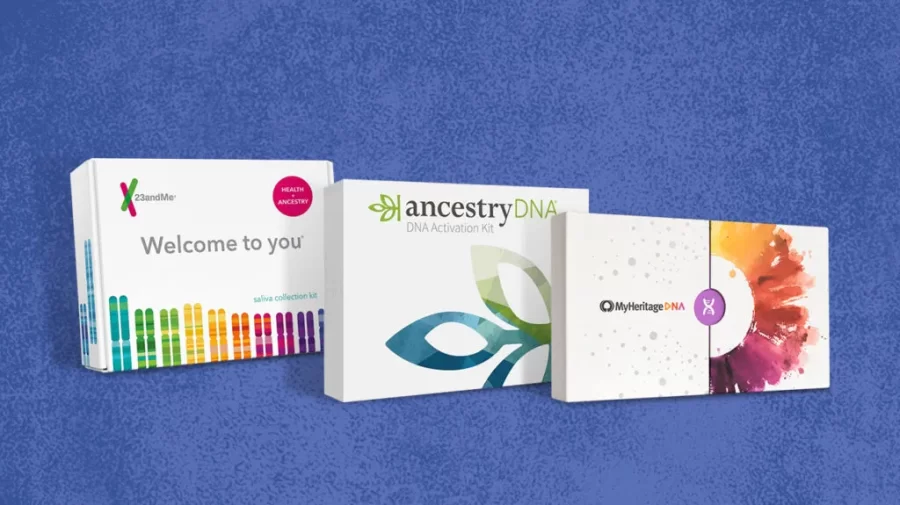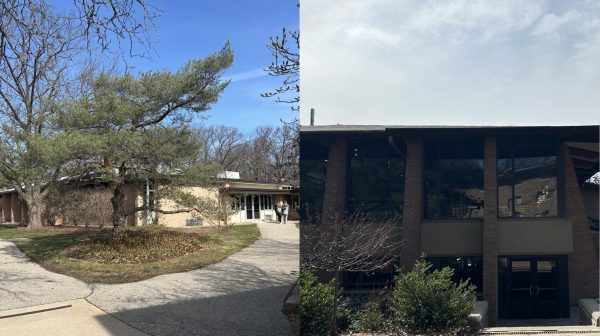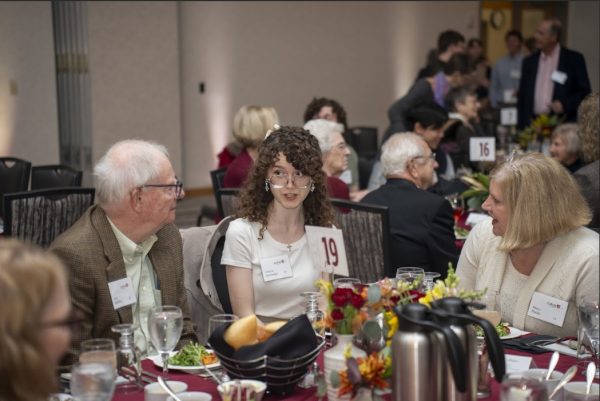Members of the African diaspora on campus trace their ancestral heritage
Ancestry tests have been a way for members of the African diasphora in the Calvin community to connect with their roots.
Members of the African diaspora in the United States gladly and proudly ethnically identify as African-American. Given the history of systemic oppression and discrimination that targets their racial identity, for many, affirming their African-American identity is an act of agency and reclamation. Yet, realities of that same history of slavery and oppression mean that as a result of being kidnapped from their ancestral homes, many descendants of slaves in the diaspora lost ties to their ancestral heritage and lineage on the African continent.
In recent years, a number of DNA testing companies have started to offer African-Americans and other members of the African diaspora the opportunity to gain windows into their deep family history and trace back their ancestral roots and ethnic makeup, if they choose. Members of the diaspora at Calvin have chosen to explore these options.
Michelle Loyd-Paige, executive associate to the president for diversity & inclusion, told Chimes that she took both the 23andMe and Ancestry DNA tests back in 2017, tracing 74% of her ancestry to Africa, 24% to Europe and less than 1% to the Americas as well as to Polynesia.
Loyd-Paige said she had pragmatic reasons for making the decision, as she wanted to ascertain any health risks or underlying conditions in her pedigree and also felt passionate about contributing to a comprehensive database on Black people for the sake of health research, something she had identified a lack of.
Loyd-Paige said she was also driven to take the tests to explore the complexity of identity as a concept.
“[It was] understanding or sensing that there are very few people who are purely one thing or one racial-ethnic identity and understanding, as an African-American, that there are likely other people groups that are in my family tree either voluntarily or involuntarily,” Loyd-Paige said. “I just wanted to know what the mix was.”
Since receiving her results, Loyd-Paige said her perception of her identity hasn’t undergone much change as she still primarily identifies as an African-American. If anything, it has helped to solidify the foundation of her identity as an African-American woman, having found out her African roots.
She said she might consider traveling to some of the places listed in her African ancestry in the distant future.
Traveling has played a role in finding a place in the diaspora. Professor Eric Washington, director of African and African diaspora studies, had been toying with the idea of tracing his ancestry when a visit to Elmina castle in Ghana, a trading post that had served as a major stop on the Atlantic slave trade route, cemented the decision for him.
“Standing at that door of no return,” he said, “and wondering if one of or some of my ancestors passed through that door — I had to know something.”
Between 2018 and 2019, Washington took several DNA tracing tests, ranging in scope and specificity, including tests like 23andMe, MyHeritage DNA, CRI Genetics, African Ancestry and Ancestry.com. Washington said taking the tests had significant financial costs, costing up to $289. But he was committed to tracing his ancestry down to ethnolinguistic roots.
His greatest worry when taking the tests concerned discovering a large proportion of Caucasian heritage in his bloodline, which he said would have implied a painful segment of family history and impacted his perception of his identity as African-American and Black. “That would have sent me down a cliff,” he said.
Washington said he has been particularly drawn to results that locate the majority of his ancestry (about 90%) in Africa. Some of the tests have also revealed he has Afro-Latino ancestry, while some showed traces of Chinese, Iberian and sub-continent Indian ancestry.
According to Washington, the tests mostly give regional estimates, but as more people take the tests, the results become more precise.
Washington said one of the greater challenges that remains concerns connecting the dots between the DNA results and the available records, where there are often still massive information gaps.
For Washington, a huge part of taking the test included exploring a level of kinship with people in the African continent and the history and resilience of the continent’s people and culture as it transferred to the diaspora.
“African-American cultures should help us to understand the resilience of African cultures,” he said. “It’s the resilience, recreation and reframing of African culture, not the loss of it.”
Washington travels frequently to Africa and has been able to visit some of the countries of his ancestors, where, he said, he felt familiarity and welcome.
Students like Alexis Sanders and Shelton Rodriguez have taken their DNA tests for ancestry tracing during their time here at Calvin.
Sanders, a senior majoring in economics with minors in political science and data science, said her Calvin experience was pivotal to making the decision. Sanders said the first time she realized she wanted to take the test was during her freshman year when she realized she couldn’t trace her lineage beyond her great grand-parents.
“For non-Black people, it’s very easy for them to go on Ancestry.com and just submit names or a family tree and look up their family that way,” Sanders said. “But if you get to the 1800s [or] like the early 1900s, they didn’t keep access or a record or birth certificates for a slave. So for me, I couldn’t get anywhere with doing that.”
However, it was chiefly her encounter with the international community on campus that pushed her to take the step.
“It’s like culture shock, you know. I mean, not only being surrounded by White people but then also realizing that there is so much more in the world other than the Whiteness that is surrounding us. Like seeing things like Rangeela, [African Students Association], [Asian American Association], Sister 2 Sister — all of those affinity groups. It just opens your eyes.”
Sanders said since receiving her results, she’s become set on exploring more of her roots by visiting Africa and learning more about the cultures constituting her ancestry. She also said she’s working to get her parents to take the DNA tests.
Rodriguez, a junior majoring in global development and public health with minors in psychology and African diaspora studies, said it was a matter of timing for him. Rodriguez said he was encouraged to take the test back home in Haiti but had never felt strongly enough about it. He also said he was initially skeptical of the results and had harbored worries about who would have access to the information.
However, after coming to Calvin and interacting with African students, his curiosity prevailed.
“The whole concept of knowing your history, knowing your ancestry and knowing your roots [is] an important and intrinsic part of the human psyche,” Rodriguez said.
Although he’s appreciative of having the information, Rodriguez said he takes the results that draw upon African nationalities with a grain of salt, given that a lot of the national boundaries in the continent were drawn arbitrarily by colonial powers. “I’m curious [what it would be like] if we had rewritten history so Africans were able to decide which country was which,” he said. “I guarantee you it would be 100% different.”
Dee Jackson, human resources generalist, is yet to take any of the ancestry tests, but she said that from time to time her curiosity is piqued when she meets international students.
“We have so much going on here, in America, so you don’t always have [the] time, the finances and the luxury to sit and wonder ‘Where do I come from?’” she said. “But as you get older, I guess, or when you meet people from other countries, then you think about it.”
“Other races know where they come from. We don’t really have that,” Jackson said.
Junior Alia Shenk, a secondary English education major, also hasn’t taken any of the tests but she said she is considering requesting one for Christmas. “As I get older, I want to know more about my past and my Black lineage,” she said.
When it comes to deciding whether to trace one’s heritage, Loyd-Paige said she encourages people to take the ancestry tests “if they have a strong sense of who they are.”
“My thing is, find your place in history,” Washington encouraged. For him, this extends even beyond African-Americans to include Africans.
“For us in the diaspora, we want more African-born folk to take the test,” he said. “Because the more African-born people take the test, that means the database gets larger and the results become more precise.”









